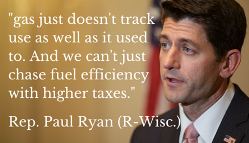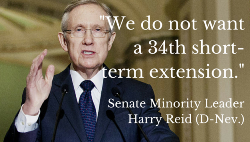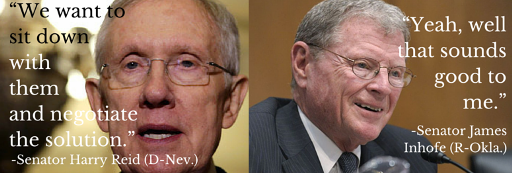by Andrew Ausel | July 1, 2015
Capitol Hill was buzzing this month as legislators debated numerous high profile proposals ranging from trade to national security authorization, but no debate was bigger for us here at DBIA than the reauthorization of the Highway Trust Fund. With their backs against a May 31 deadline, Congress extended the authorization of the Fund for an additional two months to push its expiration to July 31. Well, June is now gone, and July is very much upon us. Over the past month, exploratory hearings were held, several proposals emerged and tentative schedules were established. In an attempt to provide some clarity, I think it’s important to reflect on the month that was in order to provide direction for the month to come. Below are four of the most important things to remember in July as the reauthorization of the Highway Trust Fund is debated. Strap yourselves in for another crazy month of down-to-the-wire legislating!
1. Remember that reauthorization means nothing without a funding source. To sum up the big picture, the Highway Trust Fund needs a boost in funds which requires either the creation of new revenue (a tax) or a transfer of funds from the government’s budgetary pocket (the general fund). And although committees have started to roll out the logistics of how the money will be allocated, no one has yet agreed upon the logistics of how the money will be collected. The Senate Environment and Public Works (EPW) Committee held a meeting June 24, during which they unanimously approved the  Developing a Reliable and Innovative Vision for the Economy (DRIVE) Act, a bi-partisan $275 billion spending plan. However, they did not have the ability to create new revenue; that authority rests with the Senate Finance Committee, Chaired by Senator Orrin Hatch (R-Utah). So as the saying goes, they have written a check that they cannot cash…just yet.
Developing a Reliable and Innovative Vision for the Economy (DRIVE) Act, a bi-partisan $275 billion spending plan. However, they did not have the ability to create new revenue; that authority rests with the Senate Finance Committee, Chaired by Senator Orrin Hatch (R-Utah). So as the saying goes, they have written a check that they cannot cash…just yet.
2. There are three real revenue options on the table. The most likely idea swirling around Capitol Hill is to tax the repatriation of foreign earnings which has gained bipartisan support. Repatriation is the process of returning funds that were deposited abroad to evade taxes. Proposals from President Obama and Representative Paul Ryan (R- Wisc.) (Chairman of the House tax writing committee) would tax such earnings in return for decreased penalties for the violator. Ryan’s plan grants businesses a reprieve from penalties for avoiding prior taxes if they agree to move money back to the U.S. and pay a 6.5 percent tax rate on it, while Obama has proposed a much steeper one-time 14 percent tax on approximately $2 trillion in corporate profits sitting abroad.
Another proposal legislators are considering is pulling funds from the general fund (existing revenue) for the fiscal year. But support for this proposal appears to be weak as money will be difficult to find amidst spending caps and with difficult budget negotiations looming this fall. Representative Ryan has suggested that using the general fund will be inevitable but in the same breath noted that such funding would not be sound planning. If this maneuver is used, expect it to be in the form of a short term extension.
The last, and arguably the most controversial option, is an increase in the gas tax. Among the proposals, H.R. 1846 by Representative James B. Renacci (R-Ohio) was introduced earlier this year to index the gas and diesel tax to inflation and establish a bipartisan, joint committee to develop a plan for long-term funding by 2016. Another proposal to increase the gas tax by five cents per gallon over each of the next three years has gained the support of multiple industry groups including the American Road & Transportation Builders Association (ARTBA), the American Trucking Association (ATA) and the American Public Transportation Association (APTA). However, key conservative votes including  Representative Paul Ryan and his Senate counterpart Senator Orrin G. Hatch have vocally opposed such an increase. Ryan expressed his opposition to raising the gas tax during a June 17 Ways and Means Committee hearing by stating, “gas just doesn’t track use as well as it used to. And we can’t just chase fuel efficiency with higher taxes.”
Representative Paul Ryan and his Senate counterpart Senator Orrin G. Hatch have vocally opposed such an increase. Ryan expressed his opposition to raising the gas tax during a June 17 Ways and Means Committee hearing by stating, “gas just doesn’t track use as well as it used to. And we can’t just chase fuel efficiency with higher taxes.”
3. We may see yet another short term extension from the House, but don’t look for agreement with Senate Democrats. There are still serious proposals for another short term extension of the Trust Fund. While Senator Barbara Boxer (D- Calif.) iterated Speaker John Boehner’s (R-Ohio) support for a 6-year extension during the June 24 EPW Committee meeting, Representative Sam Graves (R-Mo.) stated during a Transportation Committee hearing held the same day that, “While we will need to pass another short-term extension by the end of July, I am hopeful that we will be able to pass a long-term bill later this year.” The proposal by Representative Renacci discussed earlier could also gain steam over the coming month as it has gained real traction among the ranks of high-profile Republicans. However, Democrats have adamantly opposed the notion that they will approve of another short term reauthorization. Senate Minority Leader Harry Reid (D-Nev.) has stated that Senate Democrats, “do not want a 34th short-term extension.” Reid, along with his fellow Democratic leadership reiterated their distaste for a short term maneuver in a letter sent to Senate Majority Leader Mitch McConnell (R-Ky.) June 16, which also outlined tentative deadlines that they would like to see for the coming month; which leads us to our next item.
4. Keep an eye out for some key deadlines. Democrats want a long term proposal to pass the required committees by July 10, with legislation coming to the Senate floor by July 20, according to the June 16 letter sent to Majority Leader Mitch McConnell. The letter sent by Reid was signed by his fellow Democratic Senators Dick Durbin (Ill.), Charles Schumer (N.Y.) Patty Murray (Wash.), Barbara Boxer (Calif.), Ron Wyden (Ore.), Bill Nelson (Fla.) and Sherrod Brown (Ohio). And Republicans in the Senate appear to be responding positively as McConnell has placed transportation as one of his top priorities for the month of July. During the June 24 session that saw the markup of the DRIVE Act, Committee Chairman Senator James Inhofe (R- Okla.) affirmed McConnell’s support of the bill, but stated that he was uncertain as to when the bill would reach the floor. When asked about the timeline requested by the leading Democrats in a story by “The Hill”, Senator Inhofe responded, “Yeah, well that sounds good to me.” As a window of opportunity, Inhofe told Bloomberg BNA that the Senate is, “looking at after the [Fourth of July] recess and before the August recess,” for the bill to reach the Senate floor.
For design-build advocates, the important takeaway not included in this analysis is that the DRIVE Act does maintain the favorable design-build language from MAP-21 that was included in previous versions of the bill. Even the otherwise non-design-build related provisions lend themselves well to design-build (see our article on the design-build impact of the DRIVE Act). And while Congress will need to do a lot of work to find a funding source before the July 31 deadline, we at DBIA do not anticipate Congress to forego value and savings brought by design-build in the final month. As the fireworks conclude this Independence Day, we fully expect the fireworks to begin on Capitol Hill July 7. As such, we encourage you to stay tuned for more updates as the month progresses.

